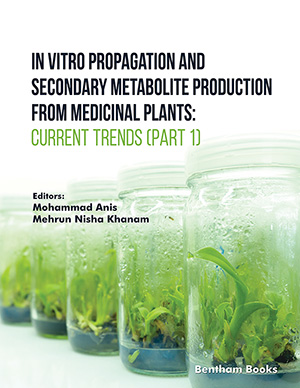Abstract
Background: Colorectal cancer (CRC) is the third most common cancer in the world. Noncoding RNAs or microRNAs (miRNAs; miRs) biomarkers can play a role in cancer carcinogenesis and progression. Specific KRAS and EGFR mutation are associated with CRC development playing a role in controlling the cellular process as epigenetic events. Circulating serum miRs can serve for early diagnosis, monitoring, and prognosis of CRC as biomarkers but it is still unclear, clinically.
Objective: To determine potential biomarkers of circulating serum miR-133b and miR-206 in CRC patients
Methods: Bioinformatic prediction of microRNA was screened followed by TargetScanHuman7.2, miRTar2GO, miRDB, MiRanda, and DIANA-microT-CDS. Forty-four CRC serum (19 locally advanced, 23 distant advanced CRC) and 12 normal serum samples were subsequently extracted for RNA isolation, cDNA synthesis, and miR validation. The candidate circulating serum miR-133b and miR-206 were validated resulting in a relative expression via quantitative RT-PCR. Relative expression was normalized to the spike-internal control and compared to normal samples as 1 using the -2ΔΔCt method in principle.
Results: Our results represented 9 miRs of miR-206, miR-155-5p, miR-143-3p, miR-193a-3p, miR-30a- 5p, miR-30d-5p, miR-30e-5p, miR-543, miR-877-5p relate to KRAS-specific miRs, whereas, 9 miRs of miR-133b, miR-302a-3p, miR-302b-3p, miR-302d-3p, miR-302e, miR-520a-3p, miR-520b, miR-520c- 3p and miR-7-5p relevance to EGFR-specific miRs by using the bioinformatic prediction tools. Our results showed a decreased expression level of circulating serum miR-133b as well as miR-206 associating with CRC patients (local and advanced metastasis) when compared to normal (P < 0.05), significantly.
Conclusion: The circulating serum miR-133b and miR-206 can serve as significant biomarkers for monitoring the clinical outcome of progression with metastatic CRC patients. Increased drug-responsive CRC patients associated with crucial molecular intervention should be further explored, clinically.
Keywords: Colorectal cancer, circulating microRNAs, prognostic biomarkers, serum miR-133b, serum miR-206, miRNAs validation.
[http://dx.doi.org/10.3322/caac.21772] [PMID: 36856579]
[http://dx.doi.org/10.2147/CMAR.S251223] [PMID: 33116845]
[http://dx.doi.org/10.3390/cancers15071948] [PMID: 37046609]
[http://dx.doi.org/10.3322/caac.21660] [PMID: 33538338]
[http://dx.doi.org/10.1080/14737159.2019.1583104] [PMID: 30760042]
[http://dx.doi.org/10.1053/j.gastro.2008.07.076] [PMID: 18773902]
[http://dx.doi.org/10.1053/j.gastro.2019.08.059] [PMID: 31622622]
[http://dx.doi.org/10.3390/vaccines10040499] [PMID: 35455247]
[http://dx.doi.org/10.1186/s12943-021-01441-4] [PMID: 34742312]
[http://dx.doi.org/10.1016/j.ajg.2018.08.002] [PMID: 30243897]
[http://dx.doi.org/10.1016/j.clcc.2019.05.004] [PMID: 31547963]
[http://dx.doi.org/10.1007/s12253-017-0308-1] [PMID: 28980150]
[http://dx.doi.org/10.1002/jcp.27806] [PMID: 30478837]
[http://dx.doi.org/10.1371/journal.pone.0112288] [PMID: 25379703]
[http://dx.doi.org/10.3892/ol.2018.8069] [PMID: 29556299]
[http://dx.doi.org/10.2147/OTT.S172887] [PMID: 30013364]
[http://dx.doi.org/10.1016/j.biopha.2020.111099] [PMID: 33338745]
[http://dx.doi.org/10.3892/ol.2018.8645] [PMID: 29928388]
[http://dx.doi.org/10.1186/1476-4598-13-86] [PMID: 24755295]
[http://dx.doi.org/10.3892/ijo.2023.5556] [PMID: 37539738]
[http://dx.doi.org/10.1038/s41419-018-0490-4] [PMID: 29739921]
[http://dx.doi.org/10.18632/oncotarget.424] [PMID: 22308266]
[PMID: 31966526]
[PMID: 31966596]
[PMID: 28936142]
[http://dx.doi.org/10.18632/oncotarget.6390] [PMID: 26623728]
[http://dx.doi.org/10.1093/nar/gkab1079] [PMID: 34850920]
[http://dx.doi.org/10.1073/pnas.1620562114] [PMID: 28484014]
[http://dx.doi.org/10.1371/journal.pcbi.1011095] [PMID: 37141389]
[http://dx.doi.org/10.1038/cr.2008.282] [PMID: 18766170]
[http://dx.doi.org/10.1177/1073274819862784] [PMID: 31431043]
[http://dx.doi.org/10.1186/1476-4598-9-306] [PMID: 21110877]
[PMID: 20637263]
[http://dx.doi.org/10.1007/978-3-319-42059-2_8] [PMID: 27573899]
[http://dx.doi.org/10.3748/wjg.v21.i27.8284] [PMID: 26217080]
[http://dx.doi.org/10.1093/carcin/bgw078] [PMID: 27485599]
[http://dx.doi.org/10.3390/diagnostics3010084] [PMID: 26835669]
[http://dx.doi.org/10.1038/bjc.2013.121] [PMID: 23558896]
[http://dx.doi.org/10.1038/srep35611]
[http://dx.doi.org/10.3748/wjg.v24.i27.2949] [PMID: 30038463]
[http://dx.doi.org/10.3390/ijms22189818] [PMID: 34575979]
[http://dx.doi.org/10.3892/ol.2020.12408] [PMID: 33633805]
[http://dx.doi.org/10.7150/jca.48769] [PMID: 33391416]
[http://dx.doi.org/10.2147/OTT.S159093] [PMID: 29636622]
[http://dx.doi.org/10.1186/s12935-022-02833-2] [PMID: 36528620]
[http://dx.doi.org/10.21037/tcr-20-2370] [PMID: 35116239]
[PMID: 33042331]
[http://dx.doi.org/10.1186/1476-4598-12-164] [PMID: 24330809]
[http://dx.doi.org/10.1186/s12943-022-01608-7] [PMID: 35773744]
[http://dx.doi.org/10.1186/s12964-022-00960-x]
[http://dx.doi.org/10.3390/ph14020136] [PMID: 33567635]
[http://dx.doi.org/10.3892/or.2015.3731] [PMID: 25607234]
[http://dx.doi.org/10.3389/fonc.2022.1054846] [PMID: 36591525]
[http://dx.doi.org/10.3892/or.2013.2475] [PMID: 23673725]
[http://dx.doi.org/10.2147/OTT.S184118] [PMID: 31118676]
[PMID: 31933974]
[http://dx.doi.org/10.3390/ijms21197040]
[http://dx.doi.org/10.1038/s41575-019-0230-y] [PMID: 31900466]
[http://dx.doi.org/10.1016/j.ncrna.2020.08.003]
[http://dx.doi.org/10.1158/1055-9965.EPI-14-0556] [PMID: 25472670]
[http://dx.doi.org/10.2217/fon-2020-0420] [PMID: 33541136]
[http://dx.doi.org/10.3389/fonc.2022.783079] [PMID: 35186731]
[http://dx.doi.org/10.3233/CBM-210353] [PMID: 34958006]
[http://dx.doi.org/10.217/1874609816666230816152744] [PMID: 37723961]
[http://dx.doi.org/10.3390/ijms22158337] [PMID: 34361106]
[http://dx.doi.org/10.1038/s41598-019-52225-2] [PMID: 31676795]
[http://dx.doi.org/10.3390/ijms23020852] [PMID: 35055034]
[http://dx.doi.org/10.5483/BMBRep.2018.51.11.116] [PMID: 30158023]
[http://dx.doi.org/10.1038/s41598-020-71868-0] [PMID: 32913235]
[http://dx.doi.org/10.3390/ijms21155311] [PMID: 32726923]
[http://dx.doi.org/10.3390/ijms21134633] [PMID: 32610706]































